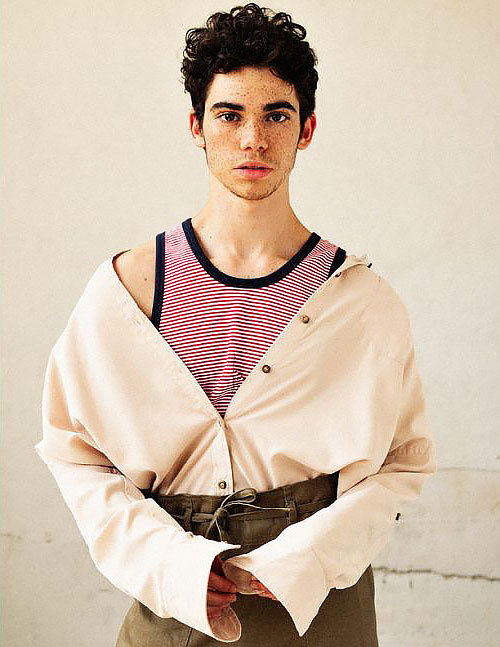Excerpts From An Interview With Assata Shakur In Cuba In 1997:

Excerpts from an interview with Assata Shakur in Cuba in 1997:
Sociologist Christian Parenti: How did you arrive in Cuba?
Assata Shakur: Well, I couldn’t, you know, just write a letter and say, “Dear Fidel, I’d like to come to your country.” So I had to hoof it–come and wait for the Cubans to respond. Luckily, they had some idea who I was, they’d seen some of the briefs and U.N. petitions from when I was a political prisoner. So they were somewhat familiar with my case and they gave me the status of being a political refugee. That means I am here in exile as a political person.
Parenti: How did you feel when you got here?
Shakur: I was really overwhelmed. Even though I considered myself a socialist, I had these insane, silly notions about Cuba. I mean, I grew up in the 1950s when little kids were hiding under their desks, because “the communists were coming.” So even though I was very supportive of the revolution, I expected everyone to go around in green fatigues looking like Fidel, speaking in a very stereotypical way, “the revolution must continue, Companero. Let us triumph, Comrade.” When I got here people were just people, doing what they had where I came from. It’s a country with a strong sense of community. Unlike the U.S., folks aren’t so isolated. People are really into other people. Also, I didn’t know there were all these black people here and that there was this whole Afro-Cuban culture. My image of Cuba was Che Guevara and Fidel Castro. I hadn’t heard of Antonio Maceo (a hero of the Cuban war of independence) and other Africans who had played a role in Cuban history.The lack of brand names and consumerism also really hit me. You go into a store and there would be a bag of “rice.” It undermined what I had taken for granted in the absurd zone where people are like, “Hey, I only eat uncle so and so’s brand of rice.”
Parenti: So, how were you greeted by the Cuban state?
Shakur: They’ve treated me very well. It was different from what I expected; I thought they might be pushy. But they were more interested in what I wanted to do, in my projects. I told them that the most important things were to unite with my daughter and to write a book. They said, “What do you need to do that?” They were also interested in my vision of the struggle of African people in the United States. I was so impressed by that. Because I grew up–so to speak–in the movement dealing with white leftists who were very bossy and wanted to tell us what to do and thought they knew everything. The Cuban attitude was one of solidarity with respect. It was a profound lesson in cooperation.
Parenti: Did they introduce you to people or guide you around for a while?
Shakur: They gave me a dictionary, an apartment, took me to some historical places, and then I was pretty much on my own. My daughter came down, after prolonged harassment and being denied a passport, and she became my number one priority. We discovered Cuban schools together, we did the sixth grade together, explored parks, and the beach.
Parenti: She was taken from you at birth, right?
Shakur: Yeah. It’s not like Cuba where you get to breast feed in prison and where they work closely with the family. Some mothers in the U.S. never get to see their newborns. I was with my daughter for a week before they sent me back to prison. That was one of the most difficult periods of my life, that separation. It’s only been recently that I’ve been able to talk about it. I had to just block it out, otherwise I think I might have gone insane. In 1979, when I escaped, she was only five years old.
Parenti: You came to Cuba how soon after?
Shakur: Five years later, in 1984.
Parenti: You’ve talked about adjusting to Cuba, but could you talk a bit about adjusting to exile.
Shakur: Well, for me exile means separation from people I love. I didn’t, and don’t miss the U.S., per se. But black culture, black life in the U.S., that African American flavor, I definitely miss. The language, the movements, the style, I get nostalgic about that. Adjusting to exile is coming to grips with the fact that you may never go back to where you come from. The way I dealt with that, psychologically, was thinking about slavery. You know, a slave had to come to grips with the fact that “I may never see Africa again.” Then a maroon, a runaway slave, has to–even in the act of freedom–adjust to the fact that being free or struggling for freedom means, “I’ll be separated from people I love.” So I drew on that and people like Harriet Tubman and all those people who got away from slavery. Because, that’s what prison looked like. It looked like slavery. It felt like slavery. It was black people and people of color in chains. And the way I got there was slavery. If you stand up and say “I don’t go for the status quo.” Then “we got something for you, it’s a whip, a chain, a cell.” Even in being free it was like, “I am free but now what?” There was a lot to get used to. Living in a society committed to social justice, a Third World country with a lot of problems. It took a while to understand all that Cubans are up against and fully appreciate all they are trying to do.
Parenti: Did the Africanness of Cuba help, did that provide solace?
Shakur: The first thing that was comforting was the politics. It was such a relief. You know, in the States you feel overwhelmed by the negative messages that you get and you feel weird, like you’re the only one seeing all this pain and inequality. People are saying, “Forget about that, just try to get rich, dog eat dog, get your own, buy, spend, consume.” So living here was an affirmation of myself, it was like “Okay, there are lots of people who get outraged at injustice.” The African culture I discovered later. At first I was learning the politics, about socialism–what it feels like to live in a country where everything is owned by the people, where health care and medicine are free. Then I started to learn about the Afro-Cuban religions, the Santaria, Palo Monte, the Abakua. I wanted to understand the ceremonies and the philosophy. I really came to grips with how much we–black people in the U.S.–were robbed of. Here, they still know rituals preserved from slavery times. It was like finding another piece of myself. I had to find an African name. I’m still looking for pieces of that Africa I was torn from. I’ve found it here in all aspects of the culture. There is a tendency to reduce the Africanness of Cuba to the Santaria. But it’s in the literature, the language, the politics.
Parenti: When the USSR collapsed, did you worry about a counter-revolution in Cuba, and by extension, your own safety?
Shakur: Of course, I would have to have been nuts not to worry. People would come down here from the States and say, “How long do you think the revolution has–two months, three months? Do you think the revolution will survive? You better get out of here.” It was rough. Cubans were complaining every day, which is totally sane. I mean, who wouldn’t? The food situation was really bad, much worse than now, no transportation, eight-hour blackouts. We would sit in the dark and wonder, “How much can people take?” I’ve been to prison and lived in the States, so I can take damn near anything. I felt I could survive whatever–anything except U.S. imperialism coming in and taking control. That’s the one thing I couldn’t survive. Luckily, a lot of Cubans felt the same way. It took a lot for people to pull through, waiting hours for the bus before work. It wasn’t easy. But this isn’t a superficial, imposed revolution. This is one of those gut revolutions. One of those blood, sweat and tears revolutions. This is one of those revolutions where people are like, “We ain’t going back onto the plantation, period. We don’t care if you’re Uncle Sam, we don’t care about your guided missiles, about your filthy, dirty CIA maneuvers. We’re this island of 11 million people and we’re gonna live the way we want and if you don’t like it, go take a ride.” Of course, not everyone feels like that, but enough do.
Parenti: What about race and racism in Cuba?
Shakur: That’s a big question. The revolution has only been around thirty-something years. It would be fantasy to believe that the Cubans could have completely gotten rid of racism in that short a time. Socialism is not a magic wand: wave it and everything changes.
Parenti: Can you be more specific about the successes and failures along these lines?
Shakur: I can’t think of any area of the country that is segregated. Another example, the Third Congress of the Cuban Communist Party was focused on making party leadership reflect the actual number of people of color and women in the country. Unfortunately by the time the Fourth Congress rolled around the whole focus had to be on the survival of the revolution. When the Soviet Union and the socialist camp collapsed, Cuba lost something like 8.5% of its income. It’s a process, but I honestly think that there’s room for a lot of changes throughout the culture. Some people still talk about “good hair” and “bad hair.” Some people think light skin is good, that if you marry a light person you’re advancing the race. There are a lot of contradictions in people’s consciousness. There still needs to be de-eurocentrizing in the schools, though Cuba is further along with that than most places in the world, In fairness, I think that race relations in Cuba are twenty times better than they are in the States, and I believe the revolution is committed to eliminating racism completely. I also feel that tine special period has changed conditions in Cuba. It’s brought in lots of white tourists, many of whom are racists and expect to be waited on subserviently. Another thing is the joint venture corporations which bring their racist ideas and racist corporate practices, for example not hiring enough blacks. Ali of that means the revolution has to be more vigilant than ever in identifying and dealing with racism.
Parenti: A charge one hears, even on the left, is that institutional racism still exists in Cuba. Is that true? Does one find racist patterns in allocation o/housing, work, or the functions of criminal justice?
Shakur: No. I don’t think institutional racism, as such, exists in Cuba. But at the same time, people have their personal prejudices. Obviously these people, with these personal prejudices, must work somewhere, and must have some influence on the institutions they work in. But I think it’s superficial to say racism is institutionalized in Cuba. I believe that there needs to be a constant campaign to educate people, sensitize people, and analyze racism. The fight against racism always has two levels; the level of politics and policy but also the level tof individual consciousness. One of the things that influences ideas about race in Cuba is that the revolution happened in 1959, when the world had a very limited understanding of what racism was. During the 1960s, the world saw the black power movement, which I, for one, very much benefited from. You know “black is beautiful,” exploring African art, literature, and culture. That process didn’t really happen in Cubar. Over the years, the revolution accomplished so much that most people thought that meant the end of racism. For example, I’d say that more than 90% of black people with college degrees were able to do so because of the revolution. They were in a different historical place. The emphasis, for very good reasons, was on black-white unity and the survival of the revolution. So it’s only now that people in the universities are looking into the politics of identity.
Parenti: Are you still a revolutionary?
Shakur: I am still a revolutionary, because I believe that in the United States there needs to be a complete and profound change in the system of so-called democracy. It’s really a “dollarocracy.” Which millionaire is going to get elected? Can you imagine if you went to a restaurant and the only thing on the menu was dried turd or dead fungus. That’s not appetizing. I feel the same way about the political spectrum in the U.S. What exists now has got to go. All of it: how wealth is distributed, how the environment is treated. If you let these crazy politicians keep ruling, the planet will be destroyed.
Parenti: In the 1960s, organizations you worked with advocated armed self-defense. How do you think social change can best be achieved in the States today?
Shakur: I still believe in self-defense and self-determination for Africans and other oppressed people in America. I believe in peace, but I think it’s totally immoral to brutalize and oppress people, to commit genocide against people, and then tell them they don’t have the right to free themselves in whatever way they deem necessary. But right now the most important thing is consciousness raising. Making social change and social justice means people have to be more conscious across the board, inside and outside the movement, not only around race, but around class, sexism, the ecology, whatever. The methods of 1917, standing on a comer with leaflets, standing next to someone saying “Workers of the world unite” won’t work. We need to use alternative means of communication. The old ways of attaining consciousness aren’t going to work. The little Leninist study groups won’t do it. We need to use video, audio, the Internet. We also need to work on the basics of rebuilding community. How are you going to organized or liberate your community if you don’t have one? I live in Cuba, right? We get U.S. movies here, and I am sick of the monsters; it’s the tyranny of the monsters. Every other movie is fear and monsters. They’ve even got monster babies. People are expected to live in this world of alienation and tear. I hear that in the States people are even afraid to make eye contact in the streets. No social change can happen if people are that isolated. So we need to rebuild a sense of community and that means knocking on doors and reconnecting.
More Posts from Minirosebush and Others

Help a Palestinian college student rebuild his home!
As you know, I and my mutuals frequently post about Siraj @/siraj2024, who is trying to rebuild his home in Gaza. We stress that rebuilding in Gaza and resisting ethnic cleansing is just as important as evacuating to safety. One of the things we are all fighting for is for Palestinians to have the right to return to their homes. With that, I have another campaign I'd like to bring to your attention.
Mahmoud Hamam (@ma7moudgaza2) is a web designer and college student. He and his family have been displaced by the IOF several times and now live in a tent in al-Mawasi, Khan Yunis. He cannot stay there much longer.
Here's what studying is like for him now:

Due to the recent massacres there, he has been unable to come online. He also had his previous account terminated by Tumblr, in an act of genocidal censorship. This is why we must help him.
He is only at $2,238 of $25,000, and he has been campaigning for a month as of right now. He has a long way to go but I beliveve it is possible to get him to his goal soon! We have seen people raise this amount in record time, I really do believe in all of us.
Despite all he has endured, he has not given up hope. Lets help him rebuild.
I am Mahmoud Hamam from Gaza, in the midst of destruction and bombing. I am writing to you that our morale is still high and that determination is present. After all the harsh circumstances we have been through, horrific events, but they will not destroy us, but rather they will make us stronger..

[verified by el-shab-hussein]
[link to his portfolio!]
[recent post by him with artwork you can repost on instagram for more reach]









Palestinian girls and women are forced to use tents as pads. People boost. Donate if you can
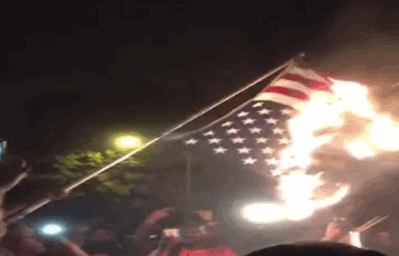
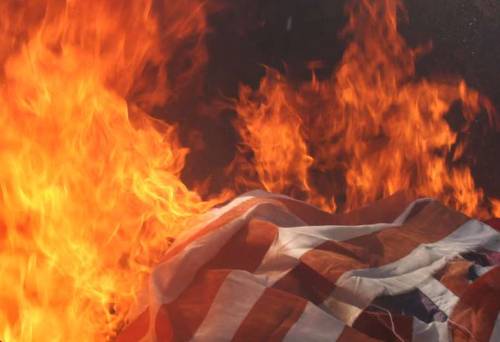
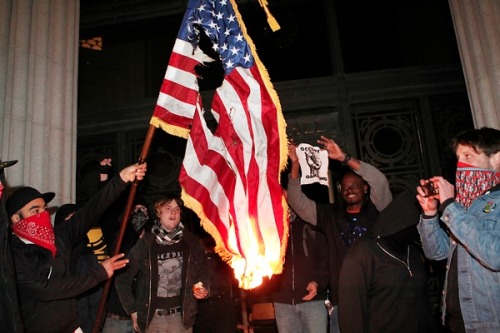

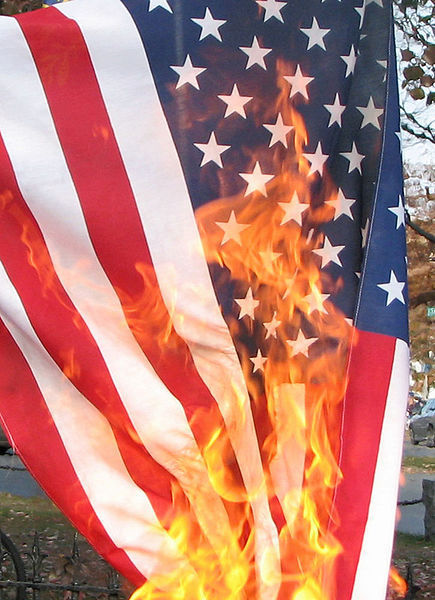

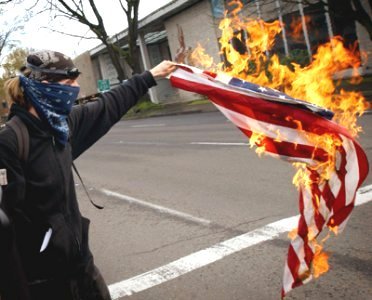
happy 4th of july ! :’)
There is also a video explaining our story in which she tells and appeals for help for these children. It is my close friend Andrea.🥰. Please donate even a little for them💚. And for the meeting.🤲. and for staying alive. It is Gaza, a dangerous place..💔🙊
I hope western leftists know that standing for a free Palestine is not the end of decolonization. I've seen far too many white leftists who proudly stand for freeing Palestine which is good but then get nervous and apprehensive at the idea of decolonizing the very land they are on. Norway will recognize Palestine but actively tear down Sámi liberation. Liberation for one people means it for us all. If you support Palestinian liberation but deny it for the Indigenous people of the land you're on then you didn't stand for Palestinians or any of us to begin with.
If you are able to, please donate to this
-
 sailinsoul liked this · 1 year ago
sailinsoul liked this · 1 year ago -
 pizzaback liked this · 1 year ago
pizzaback liked this · 1 year ago -
 jackaxed reblogged this · 1 year ago
jackaxed reblogged this · 1 year ago -
 jackaxed liked this · 1 year ago
jackaxed liked this · 1 year ago -
 exhaustedlesbeam liked this · 2 years ago
exhaustedlesbeam liked this · 2 years ago -
 eatware liked this · 2 years ago
eatware liked this · 2 years ago -
 maracuya reblogged this · 2 years ago
maracuya reblogged this · 2 years ago -
 iaminlovebyjenniferlara liked this · 3 years ago
iaminlovebyjenniferlara liked this · 3 years ago -
 varanus-komodoensis liked this · 3 years ago
varanus-komodoensis liked this · 3 years ago -
 jeewj-2393 reblogged this · 3 years ago
jeewj-2393 reblogged this · 3 years ago -
 onetomb reblogged this · 3 years ago
onetomb reblogged this · 3 years ago -
 jamaicanblackcastoroil liked this · 3 years ago
jamaicanblackcastoroil liked this · 3 years ago -
 blackcharacterwithoutlines liked this · 3 years ago
blackcharacterwithoutlines liked this · 3 years ago -
 punkdusol liked this · 3 years ago
punkdusol liked this · 3 years ago -
 blackmartian reblogged this · 3 years ago
blackmartian reblogged this · 3 years ago -
 heartbreakexpress liked this · 3 years ago
heartbreakexpress liked this · 3 years ago -
 runtonow liked this · 3 years ago
runtonow liked this · 3 years ago -
 savemethewaltz liked this · 3 years ago
savemethewaltz liked this · 3 years ago -
 scheharazade reblogged this · 3 years ago
scheharazade reblogged this · 3 years ago -
 blahimlenblues reblogged this · 3 years ago
blahimlenblues reblogged this · 3 years ago -
 gendertheftauto liked this · 3 years ago
gendertheftauto liked this · 3 years ago -
 heavyonittt liked this · 3 years ago
heavyonittt liked this · 3 years ago -
 isomehowdoknowwhattodowithmylife reblogged this · 3 years ago
isomehowdoknowwhattodowithmylife reblogged this · 3 years ago -
 fuckoffcreeps reblogged this · 3 years ago
fuckoffcreeps reblogged this · 3 years ago -
 rronanllynch reblogged this · 3 years ago
rronanllynch reblogged this · 3 years ago -
 vespasiana liked this · 3 years ago
vespasiana liked this · 3 years ago -
 newyorkrican922 liked this · 3 years ago
newyorkrican922 liked this · 3 years ago -
 littlemissmeowmeowbaby liked this · 3 years ago
littlemissmeowmeowbaby liked this · 3 years ago -
 rubashev liked this · 3 years ago
rubashev liked this · 3 years ago -
 punkkwix liked this · 3 years ago
punkkwix liked this · 3 years ago -
 girlforbid liked this · 3 years ago
girlforbid liked this · 3 years ago -
 nickandros reblogged this · 3 years ago
nickandros reblogged this · 3 years ago -
 elesssar liked this · 3 years ago
elesssar liked this · 3 years ago -
 aurpiment liked this · 3 years ago
aurpiment liked this · 3 years ago -
 escoteriica liked this · 3 years ago
escoteriica liked this · 3 years ago -
 horsegirl liked this · 3 years ago
horsegirl liked this · 3 years ago -
 wlw0rm liked this · 3 years ago
wlw0rm liked this · 3 years ago -
 scripps reblogged this · 3 years ago
scripps reblogged this · 3 years ago -
 nvijork reblogged this · 3 years ago
nvijork reblogged this · 3 years ago -
 nvijork liked this · 3 years ago
nvijork liked this · 3 years ago -
 aroseofjericho reblogged this · 3 years ago
aroseofjericho reblogged this · 3 years ago -
 glaciersandgalaxies reblogged this · 3 years ago
glaciersandgalaxies reblogged this · 3 years ago -
 glaciersandgalaxies liked this · 3 years ago
glaciersandgalaxies liked this · 3 years ago -
 awyeahtism liked this · 3 years ago
awyeahtism liked this · 3 years ago -
 quillthequilava reblogged this · 3 years ago
quillthequilava reblogged this · 3 years ago -
 pomegristle reblogged this · 3 years ago
pomegristle reblogged this · 3 years ago
